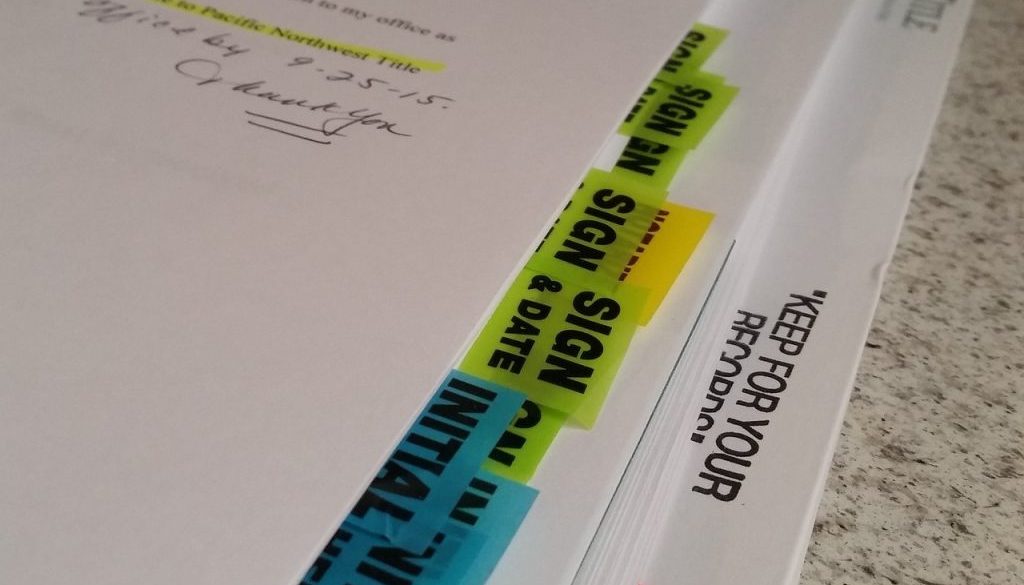Legal Documents Every Caregiver Must Have in Florida
By Maureen Rulison
Caregiver Support and Resources
I shudder to describe the horror stories. As I’ve said before, being the most compassionate care partner possible is a labor of love. But it’s even more difficult to manage in the shadow of healthcare and legal bureaucracy. Imagine, in the worst-case scenario, not being able to advocate for something YOU KNOW your loved one needs and wants because you don’t have a little piece of paper granting you the right.
Let’s not let that happen! These are the legal documents every Florida caregiver must have in place to effectively:
- Provide home care
- Coordinate medical care & community resources
- Manage finances & personal affairs
- Assist medical decision-making
- Navigate end-of-life care & estate matters
These documents not only give you (or other members of the care-partner team) authority to make important decisions on their behalf, but most importantly to ensure that their wishes are respected. Let’s explore the essential legal documents that caregivers must have in the state of Florida to navigate the complexities of caregiving with confidence.
Essential Legal & Financial Documents for Florida Caregivers
Let’s make sure you’re (legally) prepared to help manage your loved one’s medical care and personal affairs, and to advocate for them if/when they become incapacitated.
HIPAA Authorization Form
The Health Information Portability and Accountability Act (HIPAA) sets strict rules for safeguarding individuals’ health information. In Florida, as in other states, you’ll need a signed HIPAA authorization form to access your loved one’s medical records and receive updates from healthcare providers.
This release form grants you permission to receive sensitive health information, allowing you to stay informed about your loved one’s medical condition, treatments and progress.
So many care partners assume being present and informing care decisions is their right. I can’t count how many times a phrase like, “But I’m her daughter,” has come up while attending doctor visits. You’re right. You are their daughter (or another close family member). But the HIPAA Authorization Form STILL must be filed before any medical professional will let you near the process.
Of course, they’re protecting themselves first from potential litigation, but HIPAA is in place for a good reason: to ensure sensitive information doesn’t end up in the wrong hands.
Medical Power of Attorney (POA)
Medical power of attorney, also known as a health care proxy, is a vital legal document in every state, including Florida. It designates an agent – usually a primary care partner – to make medical decisions on your loved one’s behalf if they become incapacitated or are otherwise unable to communicate wishes.
You know what your loved one wants and needs. You know, for instance, if they don’t wish to have certain pain medications (or any at all). Your loved one may follow specific rules aligning with spiritual and cultural beliefs. Or they may simply have dietary restrictions.
Having a medical POA empowers you to act decisively in critical healthcare situations, as well as those sometimes fuzzy personal wishes that some providers may overlook – or neglect. Most states accept medical power of attorney from other states, but some like “The Forbidding Four” – New Hampshire, Ohio, Texas and Wisconsin – have stricter laws.
Living Will
A living will, aka advance directive, outlines your loved one’s wishes regarding medical treatment and end-of-life care. As a primary member of the care-partner team, you need access to their living will to ensure their medical professionals know what to do. Like medical power of attorney, the living will is typically filed with your loved one’s licensed estate-planning attorney.
In Florida and most other states, a living will allows your loved one to specify the type of medical interventions and life-sustaining treatments they would receive or decline. This document mandates medical professionals and other professional caregivers follow your loved one’s choices, even when you must act on their behalf.
Do Not Resuscitate (DNR) Order
More specifically, a Do Not Resuscitate (DNR) order is a medical directive that states your loved one’s preference to forgo cardiopulmonary resuscitation (CPR) if they’re dying. This may be filed as part of a living will or as a stand-alone document.
This document must be signed by a physician and is an important addition to your loved one’s medical records if they wish to avoid aggressive life-saving measures in accordance with personal wishes, or to avoid undue stress on surviving family members.
Designation of Preneed Guardian
In Florida, a designation of preneed guardian allows your loved one to select who will act as their guardian if they become incapacitated for any reason. The statute, established in 2022, protects youth and adult dependents alike by avoiding legal guardianship proceedings in emergency situations.
This document prevents conflicts and ensures someone they trust will be appointed as their guardian, should the legal need arise.
Last Will & Testament
While not directly related to the caregiving journey, having a valid last will and testament is essential for your loved one’s estate planning in Florida. Sad as it is, life always comes to an end. Your loved one certainly wants their final wishes, funeral arrangements, assets and legacy to be managed appropriately leading up to and following their passing.
There must be no ambiguity. A will outlines how their dying days are to be spent, and how assets and belongings will be distributed – as they would’ve wanted it. This legal document ensures that their wishes are carried out, minimizing the potential for family disputes and confusion in the most tender of times.
As a Florida Caregiver, Ensure Your Loved One’s Legal & Financial Documents in Order
Having the right legal and financial documents in place is critical to effectively manage your loved one’s care and honor their wishes. It’s true in Florida as in any other state. While most are similar, there can be distinct differences in the documents required. Don’t be caught without.
I’ve seen families ripped apart and legal battles linger for years over the proper treatment of loved ones – and especially with what happens after. Consulting with an experienced elder law attorney who practices in Florida is a great place to start. We often refer our clients to Peebles & Gracy, P.A. of Dunedin, FL to help care-partner teams navigate the legal aspects of caregiving and ensure proper measures are tailored to your loved one’s unique needs and circumstances.
For all other life-care planning and Patient Advocacy needs, trust Caregiver Support and Resources, LLC. We’re here to offer over 25 years of experience providing the best possible care and support.
(Editor’s Note: Caregiver Support and Resources, LLC is not a law office. Maureen Rulison is not an attorney. The information contained in this blog is not to be construed as legal counsel or advice or substituted as such in any U.S. state, territory, locale or foreign state where it can be accessed. Rather, this blog is meant only to educate elders, care partners and families as to legal processes around life care planning.)




